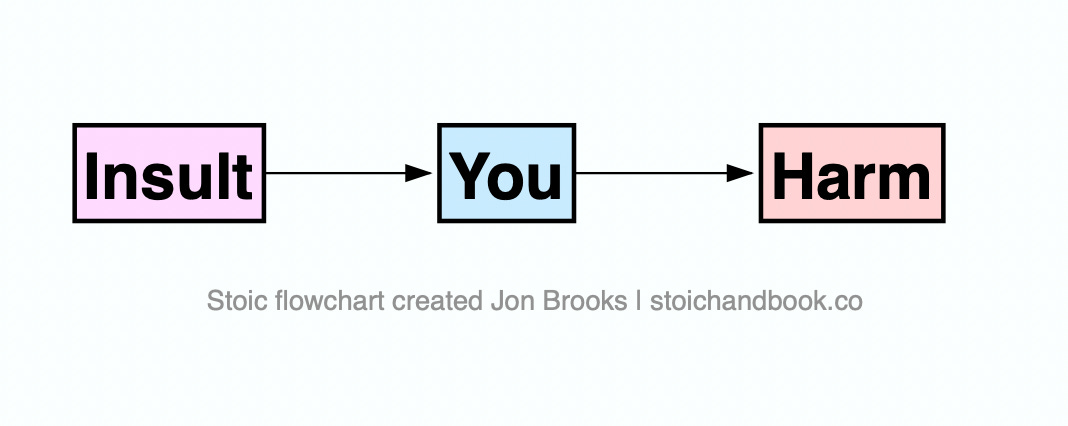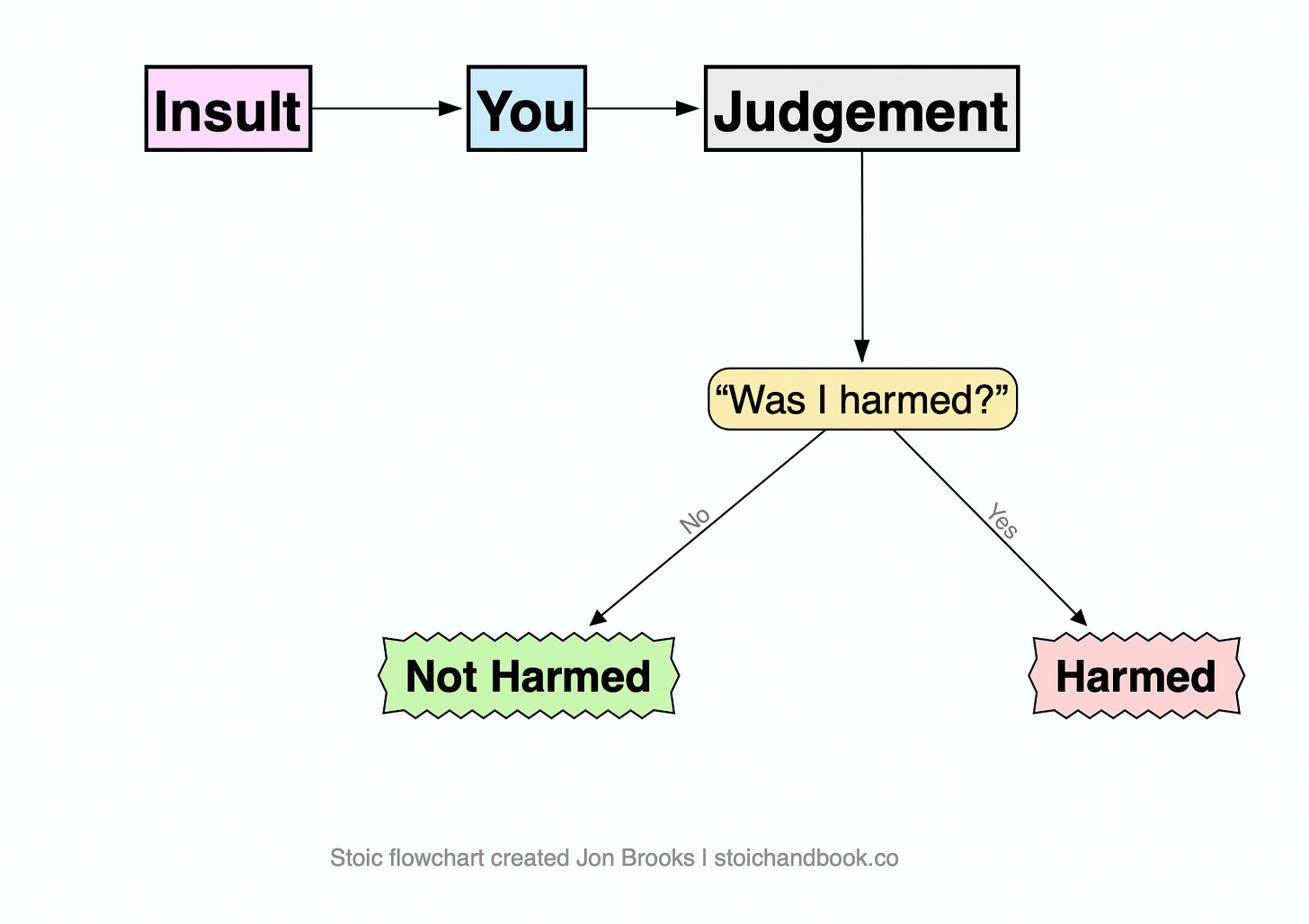When we go about practicing Stoicism, we might learn about The Dichotomy of Control—there is no point getting upset with things that are not up to us.
We might go further still and come to see that things in themselves don’t upset us, but rather our opinions about them.
And as an aspiring Stoic we do well to maintain equanimity when we spill coffee or hear bad news.
We see a sense of progress in these matters.
“This is working,” we think.
But then something unusual happens and we find ourselves back at square one…
We get emotionally triggered by another human being.
In an instant, all of our philosophical training vanishes. And in place of reason we see red.
Fantasies of revenge surface along with animalistic rage.
We feel angry that a person harmed us in this way, and even more angry that they made us lose our emotional equanimity that we worked so hard to cultivate.
So what does Epictetus have to say about this common issue even the best of us have?
I/ Nobody Can Hurt You
It is a strange thought to consider:
Can someone actually harm you?
Most of us unquestionably think that they can. We live in a paradigm not of impressions and interpretations but of fixed external events acting upon us and affecting our mood.
Here are some examples of the logic most of us use when harmed:
- If someone calls me fat, they have insulted me and therefore I feel upset.
- If someone slaps my face, and that causes me pain and therefore I’m hurt.
- If someone disrespects me, that causes me harm and I get angry.

From a Stoic perspective, these examples would not be reasonable.
There are people that have been called fat, and use that feedback to change their life and improve their health.
There are people that have been slapped and use that experience to start martial arts or leave a relationship that isn’t serving them.
There are people who get disrespected and see that as an opportunity to practice Stoicism and patience.
Some individuals are able to take events that would make other people feel victimised and instead use it for fuel to grow in power.
To a Stoic, the key is this:
It is not enough to be hit or insulted to be harmed, you must believe that you are being harmed.

Seen in this way, it is not the world that ever causes us harm, but our response that harms us. This is not a form of self-blame, but of taking extreme responsibility over our life and emotions.
II/ Your Mind Provokes Itself
When someone triggers you in some way, whether that be through disrespect, insult, or hitting, if you consider yourself to be harmed after such an event, then you are assisting the provoker.
You might agree with this idea but draw a line at hitting.
“I can be insulted and see that I wasn’t harmed, but when it comes to someone physically attacking me, that’s a completely different thing!”
Once again, we can challenge this. To be harmed is not the same thing as being hit.
We can see professional fighters getting very badly beaten up for 30 minutes and then going on to win a title and telling reporters this was the best day of their entire life.
The punches caused the fighter pain. But did the punches truly harm the fighter?
"But the context around that situation is very different from someone getting randomly attacked or slapped."
Exactly, the context that you give it changes.
The way that something is framed, completely changes the meaning.
As a Stoic, we take back our ability to frame problems and setbacks instead of being a victim of the world and others.
Note: If someone in your life is causing you anguish or is abusive, that person might be considered what Seneca called an "enemy of tranquility." If our goal is to develop our excellence of character, it would be wise to remover ourselves from them. The important point is that you have control over how you frame the situations in your life, so take it back.
III/ Patience Is Your Best Weapon
We can learn all of the anger management tips in the world, but in the end nothing will surpass the technique of just waiting.
Patience is a power that we all have. It is the power of doing nothing, just for a few moments or minutes until our reason comes back online.
The next time you experience a triggering event, just wait. Wait until the spiral of angry thoughts have slowed and you can clearly say to yourself the following:
I cannot be harmed by another person, but only by my own erroneous beliefs about this situation.
ENCHIRIDION CHAPTER TWENTY, EPICTETUS, TRANSLATION BY ROBERT DOBBIN:
Remember, it is not enough to be hit or insulted to be harmed, you must believe that you are being harmed. If someone succeeds in provoking you, realize that your mind is complicit in the provocation. Which is why it is essential that we not respond impulsively to impressions; take a moment before reacting, and you will find it is easier to maintain control.
